ISLAMABAD: Prime Minister Imran Khan’s government faces mounting pressure as rising prices and tough austerity policies under Pakistan’s latest bailout from the International Monetary Fund are squeezing the middle class that helped carry it to power.
Rashid Mehmood owns a small shop selling children’s clothing in Aabpara, the oldest market in the capital, Islamabad. He says he has faced a critical decline in sales over the past year, pointing to Khan’s election last August.
The last six months had been “particularly harsh”, he said.
“Do you see any customers coming into my store?” he asked as he stood in his empty shop, decorated with brightly colored leggings and dresses.
He said had not made a sale in a week.
In normal times, Mehmood’s store serves the kind of middle-class shoppers who in recent years have been behind an import-led consumption splurge that propped up growth and helped hide the problems of an economy riddled with inefficiency and without a strong export base.
Fed by low-interest rates, heavy borrowing and an over-valued rupee currency that, for a time at least, allowed imports to pour in, consumption gave an illusion of growth that has now been replaced by a severe economic hangover.
Like so many of its predecessors, Khan’s government, which came to power vowing to root out corruption and create millions of jobs, has been forced to turn to the IMF to prevent a balance-of-payments crisis as the money runs out.
Economic growth, which reached 5.5% in the fiscal year to June 2018, is expected to slow to 2.4% this financial year, according to IMF estimates, barely enough to keep pace with the growth in a population that now numbers 208 million.
The rupee has lost about a quarter of its value in a slide that has driven up fuel costs and helped push a relentless increase in prices for food and other necessities.
The central bank, which this week raised interest rates to 13.25%, expects inflation to average as much as 12% this year.
As ever, the poorest have been hit hardest. But the squeeze on middle-income households poses a special challenge for Khan, who has enjoyed wide support among an urban middle class that has grown over the past two decades as poverty levels have come down from two thirds of the population to about a quarter.
Further along in Aabpara market, Abida Jahan has come with her family from Haripur town, a couple of hours drive away, after the food-processing factory her husband worked in was shut down. They are looking for a gift to celebrate their daughter’s 13th birthday.
However, the surge in prices has meant that they will likely go home empty handed.
“This is the same government that promised to decrease oil prices to 45 rupees,” says Abida’s husband, recalling that Khan’s PTI party had promised to halve the price of fuel and build a new welfare state.
SHOPPING MALLS
Pakistan’s growing middle class has helped reshape its urban landscape, symbolizing a promise of upward mobility.
Shopping malls with foreign retail brands and fast-food franchises have proliferated in recent years, serving a middle class who “define themselves by what they can buy and where they can eat”, says Ammara Maqsood, author of The New Pakistani Middle Class.
In the first decade of the century, economic growth fueled by privatization led families to a new prosperity marked by their ability to buy a motorbike, rent a home or send their children to private school.
Now businesses supplying consumers with everything from mobile phones to clothing, motorbikes and cars bought on hire purchase are feeling the squeeze.
“It’s a multiple effect,” said Fatima Azim, chief executive of Azim Motors, which has a joint venture with Japanese car maker Suzuki Motors supplying small cars and motorbikes to mainly lower-middle-class customers.
“Income has not increased at all so no matter what, if they are going to a shopping mall or wherever, they are being affected,” she said.
The government has placed the blame squarely on the corruption of past governments, notably that of former Prime Minister Nawaz Sharif, who championed big infrastructure projects that spurred growth but drained currency reserves.
Sharif is now serving a seven-year sentence for a corruption conviction he said was politically motivated.
How convincing the government’s argument will be as the crisis bites remains to be seen and a nationwide strike by wholesalers and traders last weekend gave some taste of the growing unhappiness.
“Let’s be honest, it feels like we are the ones who are being punished for forcing out the crooks,” says Fawad Subhani, who owns a domestic appliance store in Islamabad.
“They were thieves, but they were thieves who also had money and friends with money.”
Pakistan price squeeze hits middle class as well as poor
Pakistan price squeeze hits middle class as well as poor
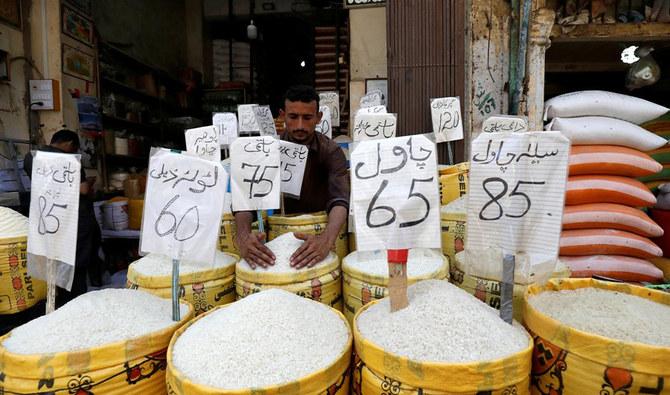
- A $6 billion IMF bailout with stringent conditions has led to rising prices and tough austerity policies
- Economic growth, which reached 5.5% in June 2018, is expected to slow to 2.4% this year
Bangladesh name Pakistan’s Mushtaq as new spin coach
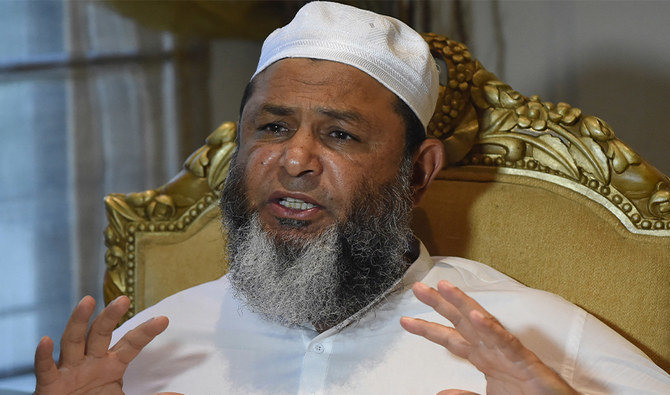
- Mushtaq Ahmed is a former Pakistan leg spinner and 1992 World Cup winner
- Ahmed will work with Bangladesh until the end of T20 World Cup in US, West Indies
DHAKA: Bangladesh named former Pakistan leg-spinner and World Cup winner Mushtaq Ahmed on Tuesday as the spin-bowling coach for the men’s national cricket team.
Mushtaq will join the side before a preparation camp for next month’s five-match Twenty20 international series against Zimbabwe and will work with the Bangladesh team until the end of the T20 World Cup in the West Indies and the United States.
Bangladesh has been in the hunt for a spin-bowling coach since Sri Lankan Rangana Herath left in November. Local coach Sohel Islam filled in during the recent series against Sri Lanka.
Mushtaq was spin coach with England from 2008-14, the West Indies in 2018-19 and Pakistan from 2020-2022.
He was also Pakistan’s bowling consultant between 2014 and 2016.
“It is a great honor for me to be a part of the Bangladesh cricket team as a spin-bowling coach,” 53-year-old Mushtaq said.
“I am looking forward to the role and want to pass my experience to the players because they are very coachable and I always believe that they are one of the most dangerous teams around.
“They can beat anyone because they have the capability, the resources and the talent. I will try to instill that belief into them,” he said.
Bangladesh will host Zimbabwe for five T20s from May 3-12 before traveling to the United States for a three-match series against the hosts and the T20 World Cup.
Pakistan Army vows stern action against ‘malicious’ propaganda targeting military
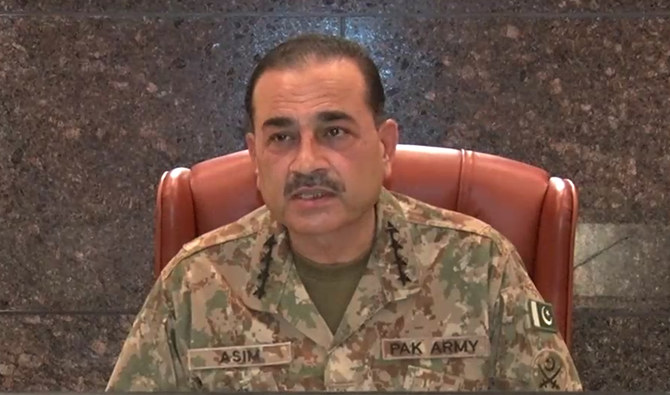
- Statement comes days after videos on social media last week showed soldiers beating Punjab police personnel in Bahawalnagar
- Baseless allegations against law enforcement agencies part of larger design to drive wedge between armed forces and people, says army
ISLAMABAD: The Pakistan Army on Tuesday warned it would ensure stern action is taken against “malicious” propaganda and baseless allegations against the country’s armed forces, days after a series of videos emerged on social media showing soldiers beating up cops after a confrontation.
According to the information available in the public domain, a brawl between army soldiers and Punjab police personnel broke out in the Pakistani city of Bahawalnagar last week. The scuffle reportedly took place after a soldier’s relative was arrested by police without the necessary paperwork.
The army said on Friday that the issue was “promptly addressed and resolved” by the military and police authorities, without sharing details of the incident. Videos of the altercations, however, prompted criticism of the army on social media platforms.
Punjab Inspector General Police Dr. Usman Anwar had blamed social media for blowing the incident out of proportion, saying it had benefited the country’s enemies who were trying to create the impression that Pakistani state institutions were at odds with one another.
“Forum noted with concern the malicious propaganda campaign meant to demoralize the Armed Forces,” the army’s media wing said in a statement released after a meeting of the army’s top brass, headed by its chief General Syed Asim Munir, took place in Rawalpindi.
The army’s media wing added it had also noted that baseless allegations against security forces were part of a larger design to drive a wedge between the people and Pakistan’s armed forces.
“We will not allow such efforts to succeed and as per the law and constitution, stern action will be ensured,” the Inter-Services Public Relations (ISPR) said.
Similar incidents have also been recorded in Pakistan in the past where army officials roughed up police personnel.
In September 2016, the Khyber Pakhtunkhwa police registered a complaint against army officials accused of beating four Motorway Police employees after the latter issued them a traffic ticket for reckless driving.
Pakistan’s powerful military has ruled the country directly for over 30 years since it gained independence in 1947. Even when not in power, the military remains the invisible guiding hand of Pakistani politics, with an outsized role in decision-making related to foreign affairs, national security and the economy.
The army, however, says it no longer interferes in political affairs.
Pakistan’s key stock index, spurred by hopes of Saudi investment, breaches 71,000 barrier

- The benchmark KSE 100 index reached a record high of 71,092 points during intra-day trading on Tuesday
- Saudi Arabia’s foreign minister arrived in Pakistan on Monday with his visit aimed at enhancing economic cooperation
KARACHI: Bulls at the Pakistan Stock Exchange (PSX) welcomed a high-profile Saudi delegation’s visit to Pakistan on Tuesday, as the key stock index registered an all-time high of over 71,000 points during intraday trading as investors hoped Islamabad would attract investment from the Kingdom, analysts said.
The benchmark KSE 100 index reached a record high of 71,092 points during the day on Tuesday before closing 60.9 points down at 70,483.6 level, the stock market’s website showed. The bullish trend followed a day after Saudi Arabia’s Foreign Minister Prince Faisal bin Farhan arrived in Pakistan on a two-day visit to the country.
The Saudi minister’s visit is aimed at enhancing bilateral economic cooperation and pushing forward previously agreed investment deals with Pakistan. His trip comes a little over a week after Crown Prince Mohammed bin Salman met Prime Minister Shehbaz Sharif in Makkah and reaffirmed the Kingdom’s commitment to expedite investments worth $5 billion.
“The current bullish trend in the stock market is fueled by hopes of realizing Saudi investments and deposits following the visit of a high-profile delegation [to Pakistan],” Muhammad Sohail, CEO of Topline Securities, told Arab News.
Pakistan’s prime minister, president and foreign minister on Tuesday said the Saudi foreign minister’s ongoing visit would help transform a longstanding friendship between the two nations into a strategic and commercial partnership.
Pakistan has identified agriculture, mining, energy and IT sectors for foreign investment through the Special Investment Facilitation Council (SIFC), a hybrid civil-military body that was formed in June last year to attract investments from mainly Gulf countries.
Ali Nawaz, CEO of Chase Securities, said other than the Saudi delegation’s arrival, other reasons had also influenced Pakistani stocks to perform well.
“Firstly, positive corporate performance by listed companies, characterized by revenue growth and profitability, has bolstered investor confidence in the market,” Nawaz told Arab News.
He said Pakistan’s stable political conditions have contributed to a positive sentiment among investors and encouraged them to invest in equities.
“Foreign investors continue to accumulate position in equity markets bringing in much-needed liquidity into capital markets,” Nawaz said.
Ahsan Mehanti, CEO of Arif Habib Corporation, said the stock market had gained impressively during the day but closed at a lower level due to institutional profit taking. Profit taking refers to the act of selling a security to lock in gains after it has risen appreciably.
Mehanti said the development had taken place amid “uncertainty over the outcome of Pakistan-IMF talks for new bailout program and geo-political tensions.”
Pakistan’s finance minister Muhammad Aurangzeb, who is in Washington, has initiated talks with IMF officials to secure a new loan program after the South Asian country’s $3 billion loan program draws to a close this month.
Speaking at an event hosted by the Atlantic Council, a think tank, the finance minister said Pakistan is looking for a larger loan program that would span two to three years in duration.
“We will need a two-to-three period year time period so that we can actually go through the structural reforms,” the finance minister said.
Lightning, heavy rains kill 57 across Pakistan in five days
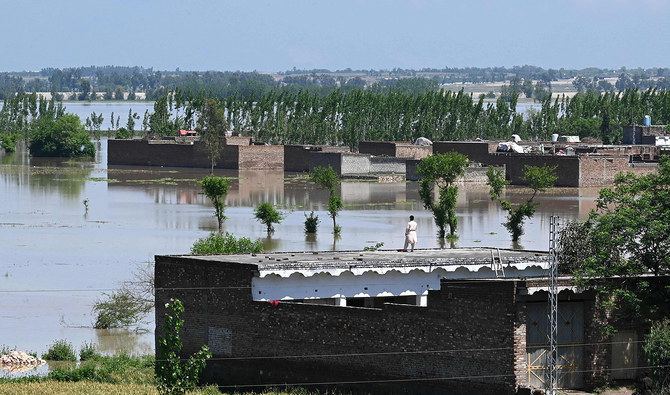
- Pakistan’s northwestern Khyber Pakhtunkhwa province reports highest casualties in five days, 21
- Punjab’s disaster management authority predicts heavy rains in province from April 18-21
PESHAWAR: Heavy rains and lightning strikes have killed at least 57 and wounded dozens of others across Pakistan during the last five days, the country’s national and provincial disaster management authorities said on Tuesday.
The downpours, which began on Friday, have damaged several homes across the South Asian country while more showers are expected across Pakistan this week, the National Disaster Management Authority (NDMA) said in a statement this week.
Pakistan’s northwestern Khyber Pakhtunkhwa (KP) province has reported the highest death toll in the country from rains during the last five days, 21, the Provincial Disaster Management Authority (PDMA) KP said. In Sindh, Punjab, Balochistan, Azad Kashmir and Gilgit-Baltistan areas, 36 people died in the last five days in rain-related incidents, the NDMA added.
“In Khyber Pakhtunkhwa province 21 people have been killed and 34 injured in the last five days due to accidents caused by heavy rain,” the PDMA said in a report.
Due to continuous downpours in different parts of the northwestern province, 344 houses have been damaged due to the rain, the report said.
The PDMA said KP’s districts of Lower and Upper Dir, Khyber, Chitral Lower, Swat, Shangla, Mansehra, Malakand, Tank, Mardan and Karak were the province’s worst-affected by the rains.
It said KP Chief Minister Ali Amin Gandapur had directed all the district administrations and departments concerned to provide medical assistance and relief to families affected by the rains.
Ex-PM Khan’s wife alleges violation of privacy, dignity under house arrest in Islamabad
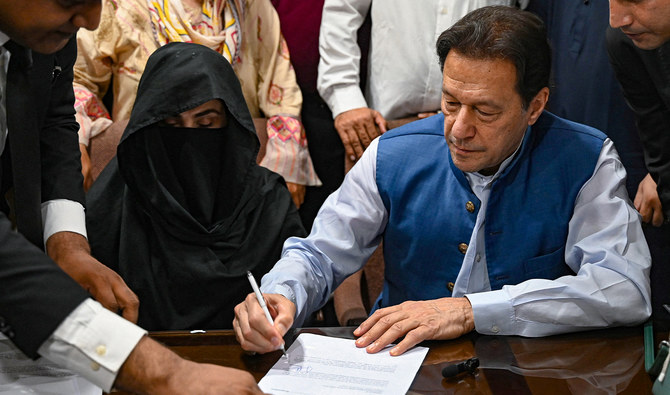
- Bushra Bibi petitions court that room she has been confined to is bugged, hidden cameras installed in room and bathroom
- Tells court she is being subjected to “mental and physical torture which is becoming a serious threat to her health and life”
ISLAMABAD: Former prime minister Imran Khan’s wife Bushra Bibi has filed a petition in the Islamabad High Court this week alleging that authorities were violating her fundamental rights during her incarceration at the Islamabad home of her husband where she has been jailed since being convicted in January for graft.
Bushra has been living under house arrest at her husband’s sprawling Bani Gala mansion, declared a sub-jail, in Islamabad since Jan. 31 when both were sentenced to 14 years in prison in a case that relates to accusations they undervalued gifts from a state repository and gained profits from selling them while Khan was prime minister from 2018-22. Khan is jailed at Rawalpindi’s Adiala Jail.
In February, Khan and his wife were also sentenced to seven years on charges they violated the country’s marriage law when they wed in 2018 — the fourth sentence so far for Khan and the second for his wife.
In her petition to the court filed on Monday, Bushar, a deeply religious woman widely believed to be Khan’s spiritual guide, alleged she was being poisoned through contaminated food and subjected to “mental and physical torture which is becoming a serious threat to her health and life.”
“She experienced severe gut pain and a burning sensation in her throat and mouth. She suspects that she has been given some sort of acid in her meal,” the petition read.
“That the sub-jail is predominantly male heavy, with only one female associate at her disposal … It is clearly a form of mental harassment. She has voiced this concern, but it hasn’t been given much attention.”
She also alleged that her room and bathroom had been bugged and multiple hidden cameras installed.
“It is a blatant violation of her privacy, dignity and honor,” the plea said.
The petition said Bushra was only given ten minutes for meetings with family members and lawyers, with five jail staff supervising at all times.
The petitioner requested the court to allow Bushra’s medical check-up and treatment from Shaukat Khanam Memorial Hospital, or any other private medical specialist or lab of her own choice. She also urged the court to order authorities to ensure the protection of her fundamental rights.
Khan was first jailed after being handed a three-year prison sentence in August 2023 by the Election Commission for not declaring assets earned from selling gifts worth more than 140 million rupees ($501,000) in state possession and received during his premiership. In January, Khan and Bushra were handed 14-year jail terms following a separate investigation by the country’s top anti-graft body into the same charges involving state gifts.
An anti-graft court in Islamabad also handed Khan a 10-year jail term in January for revealing state secrets, a week before national elections on Feb. 8. The ruling on his marriage to Bushra and a seven-year sentence each for both also came ahead of the polls.
Khan has also been indicted under Pakistan’s anti-terrorism law in connection with violence against the military that erupted following his brief arrest related to the Al-Qadir case on May 9. A section of Pakistan’s 1997 anti-terrorism act prescribes the death penalty as maximum punishment. Khan has denied the charges under the anti-terrorism law, saying he was in detention when the violence took place.
Khan’s convictions mean he is banned from holding public office and ruled the 71-year-old out of general elections earlier this year. Arguably Pakistan’s most popular politician, Khan says all cases against him are motivated to keep him out of politics.










